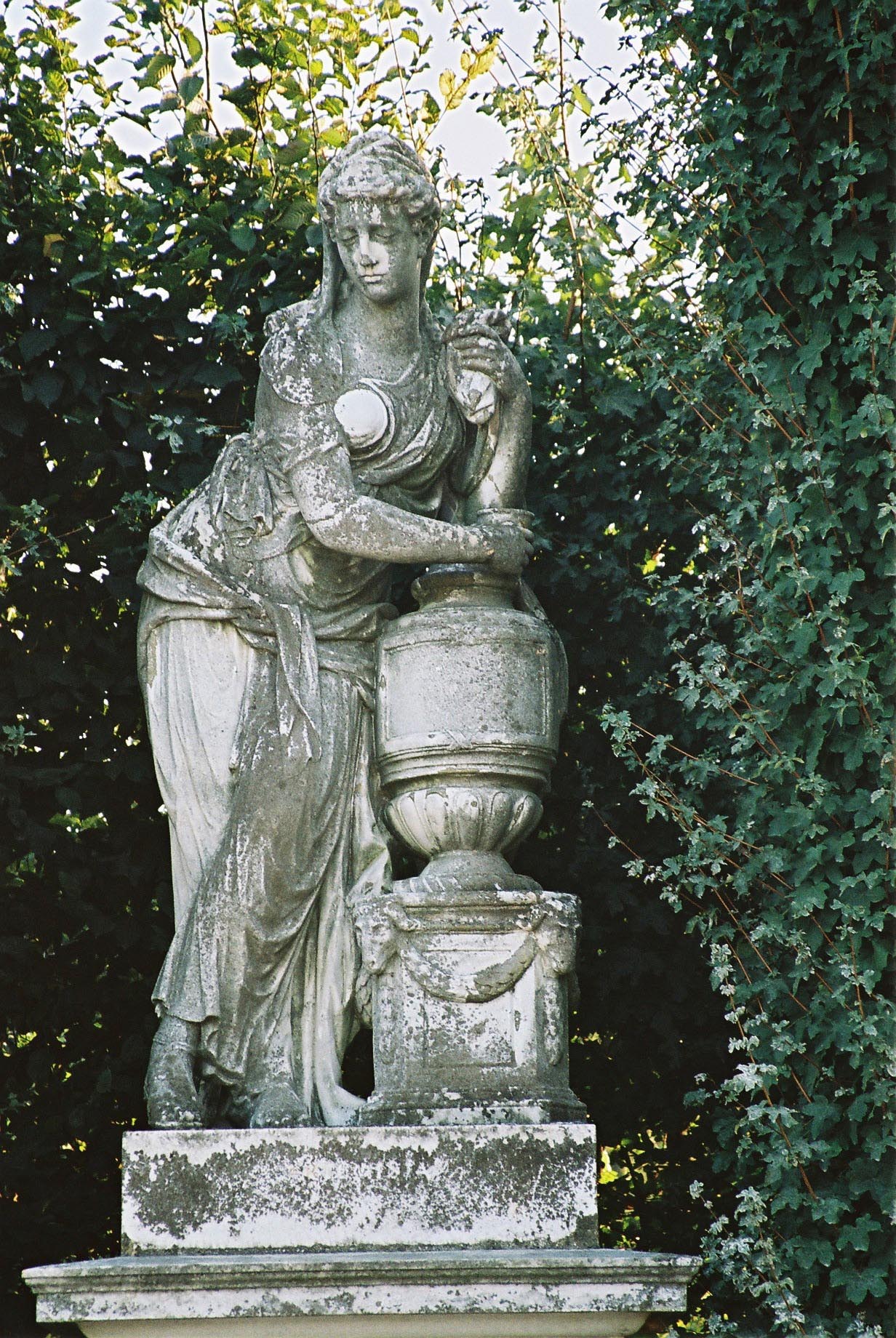 |
| Statue of King Mausolus from the Mausoleum |
The love between Artemisia II and her brother Mausolus was so profound, they became symbols of love and devotion. Mausolus was a rich Hellenistic vassal of the Persian Empire in what is now Turkey. Under the reign of him and his sister, their territory flourished, and they built many monuments.
 |
| Artist's depiction of the Mausoleum at Halicarnassus |
 |
| Horse from the roof of the Mausoleum |
Their final monument was so glorious, it became known as one of the seven wonders of the world: a giant tomb, to house their ashes. (It’s from “Mausolus” that we get the word “mausoleum.”) When her brother Mausolus died, Artemisia’s grief was so great that she ritually drank a bit of his ashes every day. She ruled well for two years, but eventually wasted away from sorrow. Her ashes were sealed in the Mausoleum with what remained of her brother’s. Their tomb would last for over a thousand years, amazing everyone who saw it.
 |
| Modern statue of Artimesia II drinking Mausolus' ashes |
The sister of Mausolus and Artemisia, Ada, also married their brother Idreus. She was deposed by the family's third brother, Pixodarus, but was reinstated by Alexander the Great when she adopted Alexander as her son and heir. She was known as a ruler who was beloved by her people.
| Skeleton of Queen Ada |
On a side note, Artemisia II was following in the footsteps of Artemisia I: warrior queen, admiral of the Persian Empire, and advisor to Emperor Xerxes.
One of the men who was next to Xerxes said to him: "Master, see Artemisia, how well she is fighting, and how she sank even now a ship of the enemy" and Xerxes then responded: "My men have become women, and my women men.". None of the crew of the Calyndian ship survived to be able to accuse her otherwise. According to Polyaenus, when Xerxes saw her sink the ship, he said: "O Zeus, surely you have formed women out of man's materials, and men out of woman's."Many Greek historians wrote her praises. She was also a symbol of tragic love, because legend had it that she killed herself because of her unrequited love for an Greek man. A heavily fictionalized version of her is a lead character in the movie 300: Rise of an Empire.
It is also likely that some historical references to "Artemisia" were actually referring to Artemisia II, and so it is likely that Artemisia II was herself a briliant general.
[Polyaenus] also in the eighth book of his work Stratagems, mentions that when Artemisia (he may have referred to Artemisia I, but most probably he referred to Artemisia II) wanted to conquer Latmus, she placed soldiers in ambush near the city and she, with women, eunuchs and musicians, celebrated a sacrifice at the grove of the Mother of the Gods, which was about seven stades distant from the city. When the inhabitants of Latmus came out to see the magnificent procession, the soldiers entered the city and took possession of it.
No comments:
Post a Comment